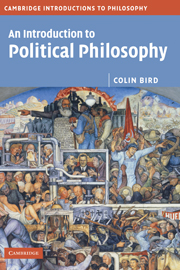12 - Radical criticism
Summary
A guiding aim of political philosophy is (or should be) to submit existing public institutions, along with any imaginable and realistically available alternatives, to what Karl Marx called “ruthless criticism.” Such criticism, Marx wrote, should be “ruthless in two senses: the criticism must not be afraid of its own conclusions, nor of conflict with the powers that be.” A “ruthless social critic” must therefore stand back from prevailing social and political forms and achieve an appropriate critical distance from dominant practices and institutions.
But how should political philosophers cultivate this “standing back” from prevailing orthodoxies and forms of social organization? How can they attain the requisite critical distance? One answer to this question is presupposed in much of the discussion contained in this book. By carefully analyzing and applying various pertinent ethical ideals – notions of freedom, democracy, equality, justice, and the common good, for example – we can determine whether political institutions of one sort or another are justified from an appropriately detached, impartial point of view. Critical inquiry into political practices is on this view inquiry into their justification conditions, where “justification” is understood in terms of the satisfaction of various ethical expectations derived from such ordinary language concepts as justice, freedom, or the common good.
Many modern writers – including Marx himself – have, however, found this traditional approach to social criticism naïve and insufficiently “ruthless.”
- Type
- Chapter
- Information
- An Introduction to Political Philosophy , pp. 277 - 296Publisher: Cambridge University PressPrint publication year: 2006



